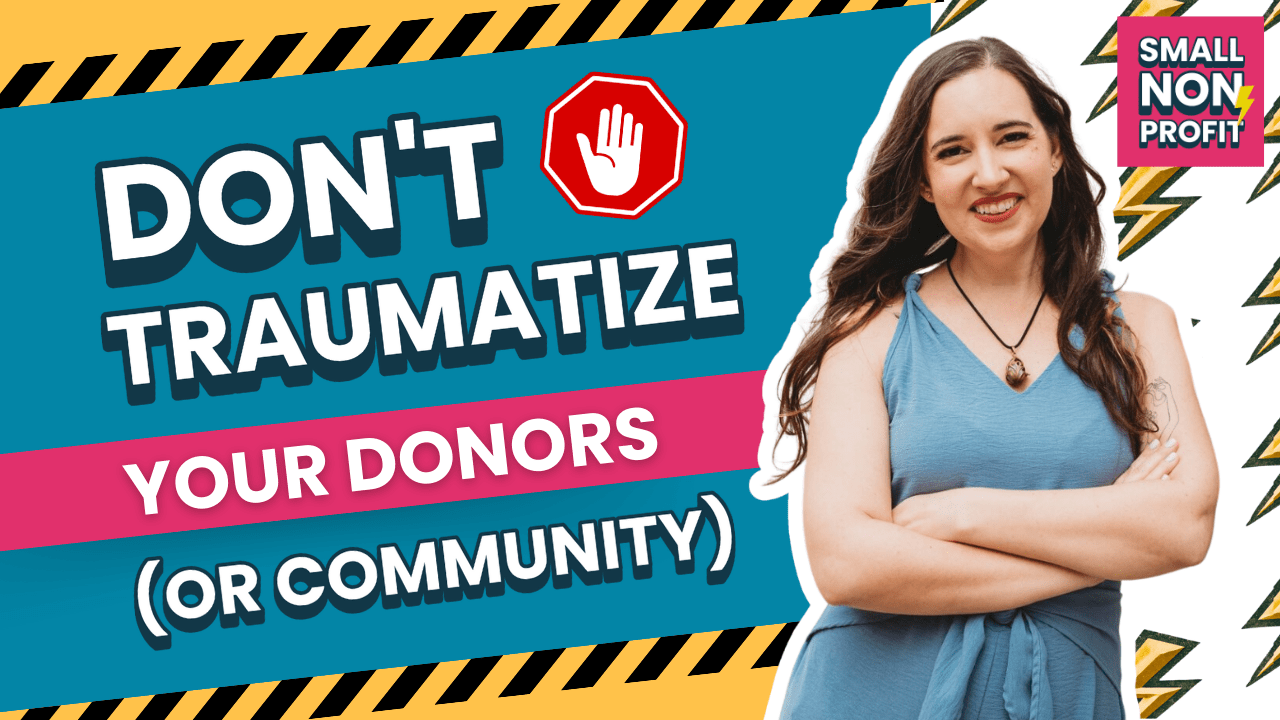Trauma-Informed Storytelling for Nonprofits: Promote Safety & Resist Harm
Subscribe on Apple Podcasts or Spotify
Are you inspiring or traumatizing donors and supporters? Storytelling is a powerful tool for nonprofits, but how can it be done ethically and with care? In this episode, Maria Bryan, a trauma-informed storytelling expert, shares actionable strategies for gathering, crafting, and distributing stories in ways that promote safety, resist harm, and maintain dignity.
Maria Bryan delivers practical insights into ethical storytelling that respects both story owners and audiences.
Trauma-Informed Storytelling for Nonprofits: Promote Safety & Resist Harm with Maria Bryan
Trauma-Informed Storytelling for Nonprofits – The Highlights:
What's trauma-informed storytelling? And why it matters for nonprofits.
Explore the three phases of storytelling: gathering, crafting, and distributing.
Discover how to ensure consent throughout the storytelling process, including setting expiration dates for shared stories.
Gain tips for crafting respectful and strengths-based stories while avoiding re-traumatization.
Understand the impact of multimedia elements like sounds and imagery on audiences and story owners.
Learn how to create a harm repair plan for when mistakes happen.
Practical advice for nonprofit marketers, fundraisers, and communicators working with sensitive stories.
🎧 Listen to more episodes for actionable fundraising tips and insights on nonprofit leadership, nonprofit governance, donor retention, productivity & tools, and donor engagement strategies that work! We're here to eliminate nonprofit burnout and boost your donations!
About Maria Bryan:
Maria helps changemakers tell impactful stories that resist harm by speaking about trauma-informed storytelling. She provides interactive virtual or in-person training for conferences, summits, retreats, or teams and members. Storytellers will feel equipped with actionable insights and resources grounded in kindness and empathy.
Actionable Tips for Nonprofits:
Create a harm repair plan: Always have a plan in place to address. Include steps for pausing, apologizing, and collaborating on next steps.
Use grounding techniques: During difficult interviews, use sensory objects or boundaries to help regulate emotions and maintain composure.
Incorporate breaks: Schedule time for breaks during emotionally intense interviews to process emotions and give yourself space to reset.
Resources and Links:
Maria Bryan’s Website
Connect with Maria Rio
Connect with Maria Bryan
Consider supporting the podcast by subscribing here.
Don’t forget to become a supporter of our show!
Watch this episode on Youtube.

